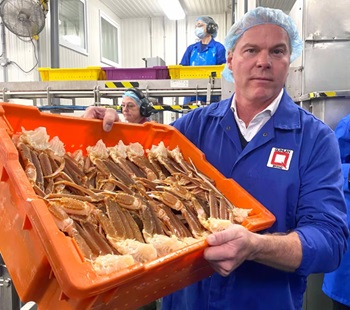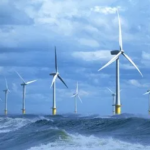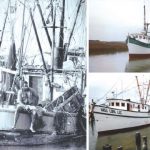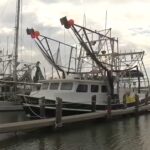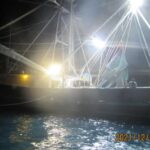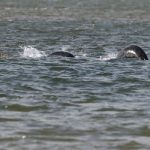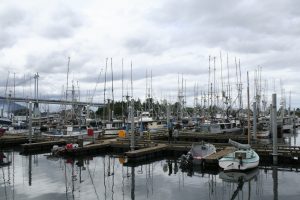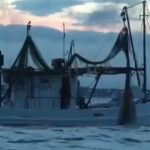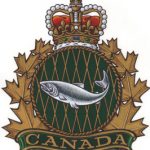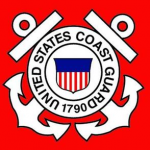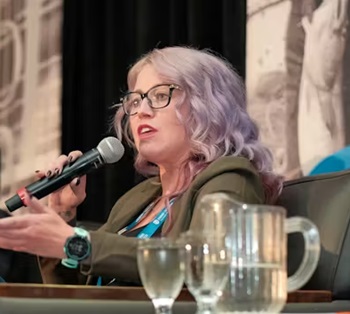 After two seasons of navigating turbulent waters, there is a sense of hope that the Newfoundland and Labrador fishery can finally sail into calmer conditions in April 2024. There was certainly no shortage of conflict on many fronts in 2024, despite efforts to get past some of the tensions that plagued the 2023 season. The provincial government had to step in and help resolve a tie-up by snow crab harvesters in the spring of 2023 that led to a six-week delay to the traditional start of the fishing season. The government formed a committee tasked with finding a better way to settle snow crab pricing, but even its recommendations failed to prevent another disagreement that led to another delayed start in April 2024. more, >>CLICK TO READ<< 09:01
After two seasons of navigating turbulent waters, there is a sense of hope that the Newfoundland and Labrador fishery can finally sail into calmer conditions in April 2024. There was certainly no shortage of conflict on many fronts in 2024, despite efforts to get past some of the tensions that plagued the 2023 season. The provincial government had to step in and help resolve a tie-up by snow crab harvesters in the spring of 2023 that led to a six-week delay to the traditional start of the fishing season. The government formed a committee tasked with finding a better way to settle snow crab pricing, but even its recommendations failed to prevent another disagreement that led to another delayed start in April 2024. more, >>CLICK TO READ<< 09:01
Tag Archives: Snow crab
ASP says union’s allegations of undercutting NL crab prices unfounded
 While he considers it an anomaly worth inquiring about, Jeff Loder warned against reading too much into the early discrepancy in market prices between snow crab caught in the Gulf of St. Lawrence fishery versus what’s been landed in Newfoundland and Labrador. Loder is executive director of the Association of Seafood Producers (ASP), the entity that represents fish processing companies in Newfoundland and Labrador and was responding to accusations that companies are deliberately undercutting the price they’re asking for snow crab in the early going of the season. That allegation was levelled by FFAW-Unifor, the union that represents fish harvesters and plant workers, in a Wednesday, April 23, news release. Photos, links, more, >>CLICK TO READ<< 10:09
While he considers it an anomaly worth inquiring about, Jeff Loder warned against reading too much into the early discrepancy in market prices between snow crab caught in the Gulf of St. Lawrence fishery versus what’s been landed in Newfoundland and Labrador. Loder is executive director of the Association of Seafood Producers (ASP), the entity that represents fish processing companies in Newfoundland and Labrador and was responding to accusations that companies are deliberately undercutting the price they’re asking for snow crab in the early going of the season. That allegation was levelled by FFAW-Unifor, the union that represents fish harvesters and plant workers, in a Wednesday, April 23, news release. Photos, links, more, >>CLICK TO READ<< 10:09
To be determined: Tariffs threat gone, but NL crab price still a contentious issue
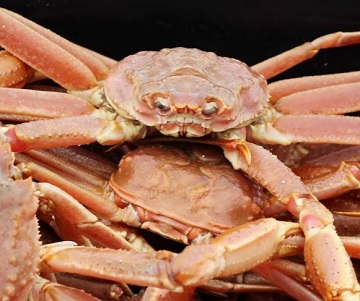 The immediate threat of tariffs has dissipated, but there is no word that the fish processors and harvesters might head back to the negotiating table to hammer out a new price for crab to get the season going. The sides have been caught up in a legal drama since Fisheries, Forestry and Agriculture Minister Gerry Byrne approved a delay in the date the parties involved were to have a pricing arrangement in place. The Association of Seafood Producers (ASP), which represents most of the processing companies in Newfoundland and Labrador, took exception to the minister’s decision because it was not a joint request to change the date. Byrne changed the date from April 1 to April 13 due to the extenuating and unforeseen circumstances when FFAW-Unifor, the union that represents most fish harvesters and plant workers, had to change its lead negotiator. more, >>CLICK TO READ<< 08:58
The immediate threat of tariffs has dissipated, but there is no word that the fish processors and harvesters might head back to the negotiating table to hammer out a new price for crab to get the season going. The sides have been caught up in a legal drama since Fisheries, Forestry and Agriculture Minister Gerry Byrne approved a delay in the date the parties involved were to have a pricing arrangement in place. The Association of Seafood Producers (ASP), which represents most of the processing companies in Newfoundland and Labrador, took exception to the minister’s decision because it was not a joint request to change the date. Byrne changed the date from April 1 to April 13 due to the extenuating and unforeseen circumstances when FFAW-Unifor, the union that represents most fish harvesters and plant workers, had to change its lead negotiator. more, >>CLICK TO READ<< 08:58
Alaskan Communities Use Flexibility in Snow Crab Fishery Alaskan Communities for Economic Relief
 The Alaska Bering Sea snow crab fishery is open for the first time in 2 years after a sharp decline in the crab population caused fishery closures. Participants have banded together with NOAA Fisheries to use regulatory flexibilities to help the fishery operate smoothly. While the species shows signs of recovery, it is still in low abundance. There are continued challenges for harvesters, processors, and small coastal communities who depend on the fishery for their income and way of life. We estimate that more than 10 billion snow crabs disappeared from the Bering Sea from 2018 to 2021 due to a marine heatwave and ecological shifts in the region. The snow crab fishery is an important economic driver in Alaska, generating an average of $150 million annually from 2012 to 2021. Disaster relief funding from the Department of Commerce in 2022–2023 provided some assistance to fishing communities. more, >>CLICK TO READ<< 11:47
The Alaska Bering Sea snow crab fishery is open for the first time in 2 years after a sharp decline in the crab population caused fishery closures. Participants have banded together with NOAA Fisheries to use regulatory flexibilities to help the fishery operate smoothly. While the species shows signs of recovery, it is still in low abundance. There are continued challenges for harvesters, processors, and small coastal communities who depend on the fishery for their income and way of life. We estimate that more than 10 billion snow crabs disappeared from the Bering Sea from 2018 to 2021 due to a marine heatwave and ecological shifts in the region. The snow crab fishery is an important economic driver in Alaska, generating an average of $150 million annually from 2012 to 2021. Disaster relief funding from the Department of Commerce in 2022–2023 provided some assistance to fishing communities. more, >>CLICK TO READ<< 11:47
Already hit by China, Nova Scotia’s seafood sector braces for U.S. tariffs next week
 Stewart Lamont, managing director of Tangier Lobster Company Ltd., on Nova Scotia’s eastern shore, said the lobster sector is “incredibly anxious” as it waits to see how prices are affected. Lamont’s company exports live lobster to 13 countries around the world. “People are nervous,” he said in an interview Friday. “We have received more calls than normal from dealers on whether we would be interested in buying lobster from them this spring.” Meanwhile, Osborne Burke, general manager of Cape Breton-based seafood processor Victoria Co-operative Fisheries Ltd., said the pending U.S. tariffs are particularly concerning to the crab fishery because of the heavy reliance on the market south of the border. more, >>CLICK TO READ<< 08:02
Stewart Lamont, managing director of Tangier Lobster Company Ltd., on Nova Scotia’s eastern shore, said the lobster sector is “incredibly anxious” as it waits to see how prices are affected. Lamont’s company exports live lobster to 13 countries around the world. “People are nervous,” he said in an interview Friday. “We have received more calls than normal from dealers on whether we would be interested in buying lobster from them this spring.” Meanwhile, Osborne Burke, general manager of Cape Breton-based seafood processor Victoria Co-operative Fisheries Ltd., said the pending U.S. tariffs are particularly concerning to the crab fishery because of the heavy reliance on the market south of the border. more, >>CLICK TO READ<< 08:02
P.E.I. snow crab fishers to start 2025 season grappling with reduced quota, trade concerns
 Snow crab fishers on Prince Edward Island are preparing to start their fishing season next week facing a 33 per cent reduction in the amount they’re allowed to catch. The reduction is based on recommendations from scientists with the federal Department of Oceans and Fisheries, who have expressed concerns about the health of snow crab stocks. The stocks tend to rise and fall on a 10-year cycle, and the crab population is now at a below-average mark. “We’re kind of on a downhill swing here,” said Carter Hutt, president of the P.E.I. Snow Crab Association. The quota reduction for the 2025 fishing season comes as P.E.I.’s seafood industries are wondering about the impacts of U.S., and Chinese tariffs on one of the province’s major exports. Photos, more, >>CLICK TO READ<< 08:01
Snow crab fishers on Prince Edward Island are preparing to start their fishing season next week facing a 33 per cent reduction in the amount they’re allowed to catch. The reduction is based on recommendations from scientists with the federal Department of Oceans and Fisheries, who have expressed concerns about the health of snow crab stocks. The stocks tend to rise and fall on a 10-year cycle, and the crab population is now at a below-average mark. “We’re kind of on a downhill swing here,” said Carter Hutt, president of the P.E.I. Snow Crab Association. The quota reduction for the 2025 fishing season comes as P.E.I.’s seafood industries are wondering about the impacts of U.S., and Chinese tariffs on one of the province’s major exports. Photos, more, >>CLICK TO READ<< 08:01
FFAW Demands Reassessment of DFO’s Snow Crab Quota Cuts Following Overnight Protest
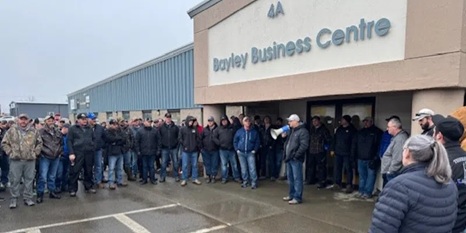 The FFAW says it has been told by the Department of Fisheries and Oceans that a reduction is coming for snow crab in the 3K zone. The union says it has been told that a 25 per cent reduction was coming for offshore harvesters and 20 per cent for inshore. The union said late Friday night that the move is “misaligned with the ecological realities of the region.” On Friday, some 200 harvesters rallied outside the DFO office in Grand Falls-Windsor to protest proposed cuts to the snow crab quota in area 3K. Meanwhile, the FFAW says their occupation of the DFO office in Grand Falls-Windsor overnight Friday was peaceful, despite not being invited into the office. Photos, links, more, >>CLICK TO READ<< 10:47
The FFAW says it has been told by the Department of Fisheries and Oceans that a reduction is coming for snow crab in the 3K zone. The union says it has been told that a 25 per cent reduction was coming for offshore harvesters and 20 per cent for inshore. The union said late Friday night that the move is “misaligned with the ecological realities of the region.” On Friday, some 200 harvesters rallied outside the DFO office in Grand Falls-Windsor to protest proposed cuts to the snow crab quota in area 3K. Meanwhile, the FFAW says their occupation of the DFO office in Grand Falls-Windsor overnight Friday was peaceful, despite not being invited into the office. Photos, links, more, >>CLICK TO READ<< 10:47
Some regions see large cuts to snow crab quotas, while total catch rises
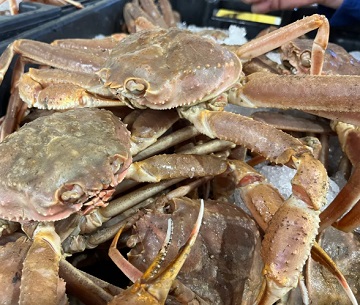 Some areas of Newfoundland and Labrador’s snow crab fishery have seen major reductions, despite the total allowable catch as a whole going up 9 per cent. The Department of Fisheries and Oceans released their annual quota Saturday morning, but protesters were already demonstrating Friday in Grand Falls-Windsor against anticipated cuts in division 3K. Those cuts did arrive. 3K is the hardest hit, losing almost a quarter of last year’s total allowable catch at 7,643 tonnes, down from 9,998 tonnes in 2024. The FFAW is already anticipating a difficult season due to tariffs in the U.S., the single largest buyer of N.L. snow crab. In a release, the union said the cuts were “wholly unacceptable to fish harvesters, as they are fundamentally misaligned with the ecological realities of the region.” more, >> CLICK TO READ<< 16:31
Some areas of Newfoundland and Labrador’s snow crab fishery have seen major reductions, despite the total allowable catch as a whole going up 9 per cent. The Department of Fisheries and Oceans released their annual quota Saturday morning, but protesters were already demonstrating Friday in Grand Falls-Windsor against anticipated cuts in division 3K. Those cuts did arrive. 3K is the hardest hit, losing almost a quarter of last year’s total allowable catch at 7,643 tonnes, down from 9,998 tonnes in 2024. The FFAW is already anticipating a difficult season due to tariffs in the U.S., the single largest buyer of N.L. snow crab. In a release, the union said the cuts were “wholly unacceptable to fish harvesters, as they are fundamentally misaligned with the ecological realities of the region.” more, >> CLICK TO READ<< 16:31
Hitting pause: Talks to set price for 2025 snow crab season in NL on hold
 There’s still no deal, but both sides trying to hammer out a new pricing formula for Newfoundland and Labrador’s snow crab fishery have agreed to pause talks until March 19. That will be one day after Seafood Expo North America, the major annual seafood show in Boston, where this year’s provincial delegation will be looking to convince American buyers that tariffs placed on Canadian exports, including seafood, are not a good thing for the sector. The negotiators from both FFAW-Unifor, the union that represents fish harvesters and plant workers, and the Association of Seafood Producers (ASP), which represents fish processing companies, have met several times since the middle of January to try to hammer out a snow crab price for the 2025 season. more, >>CLICK TO READ<< 06:38
There’s still no deal, but both sides trying to hammer out a new pricing formula for Newfoundland and Labrador’s snow crab fishery have agreed to pause talks until March 19. That will be one day after Seafood Expo North America, the major annual seafood show in Boston, where this year’s provincial delegation will be looking to convince American buyers that tariffs placed on Canadian exports, including seafood, are not a good thing for the sector. The negotiators from both FFAW-Unifor, the union that represents fish harvesters and plant workers, and the Association of Seafood Producers (ASP), which represents fish processing companies, have met several times since the middle of January to try to hammer out a snow crab price for the 2025 season. more, >>CLICK TO READ<< 06:38
Snow crab now crab as FFAW and ASP show willingness to work together
 A week of long days and almost around the clock negotiations has left the Fish, Food and Allied Workers union and the Association of Seafood Producers optimistic that a snow crab harvest will happen this year. “The FFAW and ASP have done an incredible job together to have constructive conversations at this point,” ASP executive director Jeff Loder said Wednesday. “Of course, until you get a deal, you have no deal. But I am cautiously optimistic that we are close.” The two sides are keen to negotiate a deal as soon as possible. A meeting with a price setting panel is scheduled for March 20 should the two sides not make an agreement by then. Video, more, >>CLICK TO READ<< 06:08
A week of long days and almost around the clock negotiations has left the Fish, Food and Allied Workers union and the Association of Seafood Producers optimistic that a snow crab harvest will happen this year. “The FFAW and ASP have done an incredible job together to have constructive conversations at this point,” ASP executive director Jeff Loder said Wednesday. “Of course, until you get a deal, you have no deal. But I am cautiously optimistic that we are close.” The two sides are keen to negotiate a deal as soon as possible. A meeting with a price setting panel is scheduled for March 20 should the two sides not make an agreement by then. Video, more, >>CLICK TO READ<< 06:08
‘Cruel’ tariff threats bring endless uncertainty to N.B. fisheries
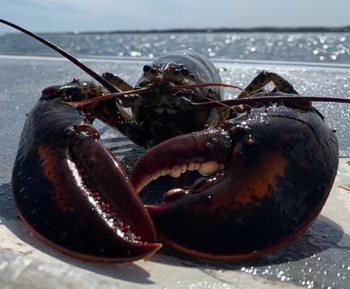 Leaders in New Brunswick’s fishing industry are not mincing words when it comes to the cloud of uncertainty hanging over the constant back and forth of tariff threats from U.S. President Donald Trump. “Oh, it’s painful. It’s painful,” said Geoff Irvine, executive director of the Lobster Council of Canada, in an interview. The latest date for tariffs to take effect, now set for April 2, coincides with the opening of lobster season in some sectors of the Atlantic region, but that’s about all Irvine could say for certain about the potential impact. “Honestly, I don’t have a clue. Every single processor, shipper and exporter will have to talk to their customers.” He said the constantly changing news is destabilizing. more, >>CLICK TO READ<< 11:31
Leaders in New Brunswick’s fishing industry are not mincing words when it comes to the cloud of uncertainty hanging over the constant back and forth of tariff threats from U.S. President Donald Trump. “Oh, it’s painful. It’s painful,” said Geoff Irvine, executive director of the Lobster Council of Canada, in an interview. The latest date for tariffs to take effect, now set for April 2, coincides with the opening of lobster season in some sectors of the Atlantic region, but that’s about all Irvine could say for certain about the potential impact. “Honestly, I don’t have a clue. Every single processor, shipper and exporter will have to talk to their customers.” He said the constantly changing news is destabilizing. more, >>CLICK TO READ<< 11:31
N.L. snow crab stocks remain healthy, but there is a threat to growth: DFO
 Newfoundland and Labrador snow crab stocks appear to remain healthy, Fisheries and Oceans Canada (DFO) said Tuesday during its annual stock assessment report. The latest assessment suggests the 2024 biomass of commercial-sized snow crab, which measure at a 95-millimeter shell width, remains near the same level as the year prior. Snow crab landings were recorded at over 56,000 tonnes in 2024. However, the assessment indicates poor stock growth over the next two to four years because of environmental conditions like warming oceans. Snow crab thrive in cold water with a narrow range of temperatures, and a warming climate can stunt production, growth and survival. It typically takes a male snow crab nine to 13 years to reach the legal commercial size. more, >>CLICK TO READ<< 16:56
Newfoundland and Labrador snow crab stocks appear to remain healthy, Fisheries and Oceans Canada (DFO) said Tuesday during its annual stock assessment report. The latest assessment suggests the 2024 biomass of commercial-sized snow crab, which measure at a 95-millimeter shell width, remains near the same level as the year prior. Snow crab landings were recorded at over 56,000 tonnes in 2024. However, the assessment indicates poor stock growth over the next two to four years because of environmental conditions like warming oceans. Snow crab thrive in cold water with a narrow range of temperatures, and a warming climate can stunt production, growth and survival. It typically takes a male snow crab nine to 13 years to reach the legal commercial size. more, >>CLICK TO READ<< 16:56
Snow crab quotas way up for some Cape Bretoners, way down for others
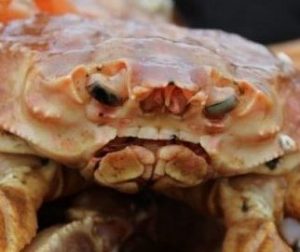 Gulf of St. Lawrence snow crab fishermen are learning who’ll be winners and losers when quotas are divided up for the 2025 season. At a meeting with Fisheries and Oceans Canada (DFO) in Moncton this week, the commercial fishermen in Area 19 (near shore in western Cape Breton) learned they’ll get a 42 per cent quota increase. That’ll offset quota cuts in the past two years that equaled about the same. The much larger Area 12 fishery, which covers the central Gulf of St. Lawrence all the way to New Brunswick, meanwhile, can expect to see an over 20 per cent cut to their quota. Demand for snow crab is high in the United States, where 85 per cent of what’s caught in the southern Gulf goes. Prices were around $4 a pound last year and it was hoped to be higher this season. But U.S. President Donald Trump’s threat of a 25 per cent tariff could hurt everyone’s bottom line. “We’re waiting on Trump, like every industry from forestry to mining,” said MacLean. more, >>CLICK TO READ<< 15:22
Gulf of St. Lawrence snow crab fishermen are learning who’ll be winners and losers when quotas are divided up for the 2025 season. At a meeting with Fisheries and Oceans Canada (DFO) in Moncton this week, the commercial fishermen in Area 19 (near shore in western Cape Breton) learned they’ll get a 42 per cent quota increase. That’ll offset quota cuts in the past two years that equaled about the same. The much larger Area 12 fishery, which covers the central Gulf of St. Lawrence all the way to New Brunswick, meanwhile, can expect to see an over 20 per cent cut to their quota. Demand for snow crab is high in the United States, where 85 per cent of what’s caught in the southern Gulf goes. Prices were around $4 a pound last year and it was hoped to be higher this season. But U.S. President Donald Trump’s threat of a 25 per cent tariff could hurt everyone’s bottom line. “We’re waiting on Trump, like every industry from forestry to mining,” said MacLean. more, >>CLICK TO READ<< 15:22
Climate change makes winners and losers out of cod and snow crab, says scientist
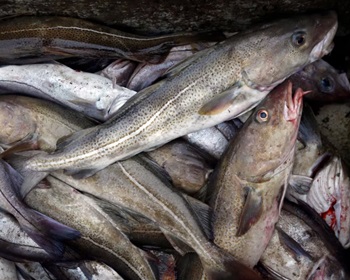 A team of scientists used modelling to look into the effects of climate change on three Grand Banks fish species. They anticipate that warmer waters could lead to biomass declines for snow crab and yellowtail flounder but gains for Atlantic cod. “That’s one thing that we see when we’re looking at the impacts of climate change on marine ecosystems and oceans, is that there are winners and losers. So it’s not as though everything is going to be negatively impacted,” said Tyler Eddy, a scientist with Marine Institute’s Centre for Fisheries Ecosystems Research. Species that thrive or struggle in these scenarios will depend on their thermal preferences and changes in a region, he said, adding a specific species might also leave a region to follow their preferred temperature. more, >>CLICK TO READ<< 10:06
A team of scientists used modelling to look into the effects of climate change on three Grand Banks fish species. They anticipate that warmer waters could lead to biomass declines for snow crab and yellowtail flounder but gains for Atlantic cod. “That’s one thing that we see when we’re looking at the impacts of climate change on marine ecosystems and oceans, is that there are winners and losers. So it’s not as though everything is going to be negatively impacted,” said Tyler Eddy, a scientist with Marine Institute’s Centre for Fisheries Ecosystems Research. Species that thrive or struggle in these scenarios will depend on their thermal preferences and changes in a region, he said, adding a specific species might also leave a region to follow their preferred temperature. more, >>CLICK TO READ<< 10:06
The Snow Crab Collapse: A Tale of Unproven Assumptions and Overlooked Explanations
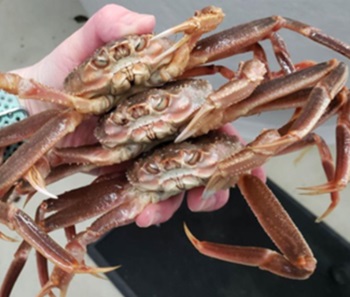 The sudden decline in the snow crab population in the Bering Sea has triggered considerable concern among scientists, fisheries, and environmentalists alike. The collapse is alarming not only because of its immediate economic impact but also due to the broader implications for marine ecosystems. However, a critical examination of the prevailing explanations for this phenomenon reveals a troubling reliance on speculation rather than solid evidence. The central thesis of the NOAA Fisheries report—that warmer water temperatures increased snow crab metabolism, leading to their downfall—requires a more skeptical analysis. In this post, we’ll explore the weaknesses of this hypothesis, examine other plausible causes, and argue for a more comprehensive approach to understanding this ecological mystery. more, >>CLICK TO READ<< 08:27
The sudden decline in the snow crab population in the Bering Sea has triggered considerable concern among scientists, fisheries, and environmentalists alike. The collapse is alarming not only because of its immediate economic impact but also due to the broader implications for marine ecosystems. However, a critical examination of the prevailing explanations for this phenomenon reveals a troubling reliance on speculation rather than solid evidence. The central thesis of the NOAA Fisheries report—that warmer water temperatures increased snow crab metabolism, leading to their downfall—requires a more skeptical analysis. In this post, we’ll explore the weaknesses of this hypothesis, examine other plausible causes, and argue for a more comprehensive approach to understanding this ecological mystery. more, >>CLICK TO READ<< 08:27
FFAW celebrating decision against seafood processors in snow crab dispute
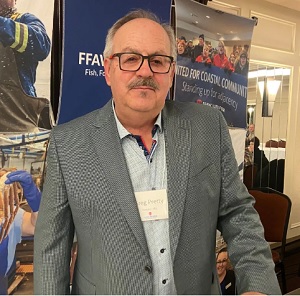 The Fish, Food and Allied Workers union is celebrating a ruling over last year’s payment dispute for snow crab that the union president estimates will net a collective $3.3 million payout for harvesters. FFAW filed the grievance against the Association of Seafood Producers (ASP) on the removal of the 20 per cent tolerance for snow crab in 2023. The tolerance had previously allowed harvesters to be paid the minimum price for their entire catch as long as the percentage of crab under four inches, but still of legal size, was less than 20 per cent. On Aug. 5 the arbiter ruled in favour of the fish harvesters union. “These processors have processing licenses from the province, and I expect them to behave in a more honourable manner than what they’ve been doing,” FFAW president Greg Pretty told CBC News. “It’s important not only that the harvesters get their money back, but that it shines a light on behaviours of crab processing companies in this province.” He said fish harvesters are owed approximately $3.3 million from 2023 from processing companies. more, >>CLICK TO READ<< 14:19
The Fish, Food and Allied Workers union is celebrating a ruling over last year’s payment dispute for snow crab that the union president estimates will net a collective $3.3 million payout for harvesters. FFAW filed the grievance against the Association of Seafood Producers (ASP) on the removal of the 20 per cent tolerance for snow crab in 2023. The tolerance had previously allowed harvesters to be paid the minimum price for their entire catch as long as the percentage of crab under four inches, but still of legal size, was less than 20 per cent. On Aug. 5 the arbiter ruled in favour of the fish harvesters union. “These processors have processing licenses from the province, and I expect them to behave in a more honourable manner than what they’ve been doing,” FFAW president Greg Pretty told CBC News. “It’s important not only that the harvesters get their money back, but that it shines a light on behaviours of crab processing companies in this province.” He said fish harvesters are owed approximately $3.3 million from 2023 from processing companies. more, >>CLICK TO READ<< 14:19
Ropeless gear program will keep P.E.I. snow crab harvester on water despite whale sightings
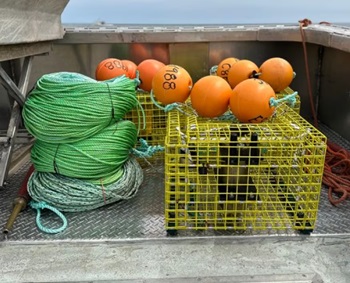 Alden Gaudet fishes snow crab out of Tignish Run and is close to reaching his quota for the season. The first sighting of a right whale in Canadian waters in 2024 came last Friday. A whale that has been dubbed Shelagh was seen northeast of New Brunswick and northwest of the Magdalen Islands. After that led to a partial closure of fishing grounds near his traps, Gaudet reached out to CanFish, a free gear-lending program based in Halifax that’s operated by the Canadian Wildlife Federation. Photos, more, >>CLICK TO READ<< 17:36
Alden Gaudet fishes snow crab out of Tignish Run and is close to reaching his quota for the season. The first sighting of a right whale in Canadian waters in 2024 came last Friday. A whale that has been dubbed Shelagh was seen northeast of New Brunswick and northwest of the Magdalen Islands. After that led to a partial closure of fishing grounds near his traps, Gaudet reached out to CanFish, a free gear-lending program based in Halifax that’s operated by the Canadian Wildlife Federation. Photos, more, >>CLICK TO READ<< 17:36
With crab season underway, potential job action looms for fish plant workers without a contract
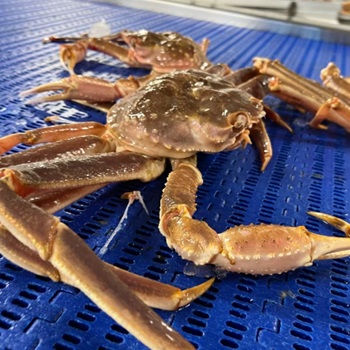 Crab is coming into processing plants in eastern Newfoundland, but the lack of a contract for unionized workers could throw a wrench in the season. Joey Warford, the industrial-retail-offshore council member representative for the Fish, Food & Allied Workers union, said plant workers have been without a deal since December. “We’re hoping to get a deal done but, you know, that remains to be seen. The members are speaking loud and clear on their needs and their wants,” Warford — who said he represents about 1,000 plant workers in without a deal in Witless Bay, Bonavista, Triton and New Wes Valley, more, >CLICK TO READ<< 19:25
Crab is coming into processing plants in eastern Newfoundland, but the lack of a contract for unionized workers could throw a wrench in the season. Joey Warford, the industrial-retail-offshore council member representative for the Fish, Food & Allied Workers union, said plant workers have been without a deal since December. “We’re hoping to get a deal done but, you know, that remains to be seen. The members are speaking loud and clear on their needs and their wants,” Warford — who said he represents about 1,000 plant workers in without a deal in Witless Bay, Bonavista, Triton and New Wes Valley, more, >CLICK TO READ<< 19:25
Rumours of soaring crab prices cause N.L.’s newest processor to hit pause
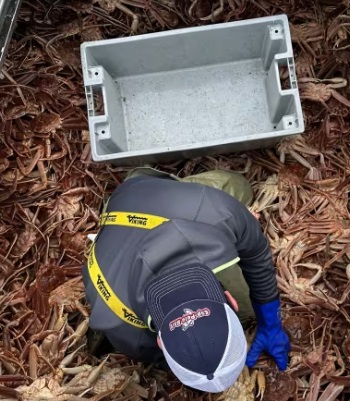 Lloyd Nash was all ready to start accepting the first loads of crab at his new processing plant when the market was thrown into a tizzy over the weekend. The owner of Uncharted Seafood in St. John’s obtained a crab licence this season, after fish harvesters successfully lobbied the provincial government to issue new licences. He was even prepared to offer a little more than the $3 per pound that was agreed upon by the associations for producers and harvesters after a protracted battle over pricing. But then, rumours ripped through the industry that some of the larger processors were preparing to offer as much as $4.50 per pound. more, >>CLICK TO READ<< 07:42
Lloyd Nash was all ready to start accepting the first loads of crab at his new processing plant when the market was thrown into a tizzy over the weekend. The owner of Uncharted Seafood in St. John’s obtained a crab licence this season, after fish harvesters successfully lobbied the provincial government to issue new licences. He was even prepared to offer a little more than the $3 per pound that was agreed upon by the associations for producers and harvesters after a protracted battle over pricing. But then, rumours ripped through the industry that some of the larger processors were preparing to offer as much as $4.50 per pound. more, >>CLICK TO READ<< 07:42
Panel Selects ASP Formula, Pulling Fair Market Share from Harvester Reach
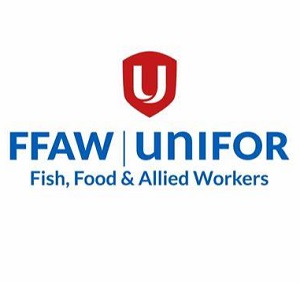 Minutes ago, the Standing Fish Price Setting Panel announced their decision for the 2024 snow crab season, siding with the Association of Seafood Producers formula. FFAW’s offer was based on the Blackwood report and would have seen harvesters capture a fair market value based on historic shares. ASP’s formula is not based on historic data, nor was justification found within their submission document. Moreover, there is no mechanism for harvesters to benefit as the market increases. ASP caps harvester share at 37% once the market reaches $8.02CAD, contrary to historic pricing shares that increases the harvester share as market prices increase. more, including 2024 Crab Fishery Decision, >>click to read<< 19:50
Minutes ago, the Standing Fish Price Setting Panel announced their decision for the 2024 snow crab season, siding with the Association of Seafood Producers formula. FFAW’s offer was based on the Blackwood report and would have seen harvesters capture a fair market value based on historic shares. ASP’s formula is not based on historic data, nor was justification found within their submission document. Moreover, there is no mechanism for harvesters to benefit as the market increases. ASP caps harvester share at 37% once the market reaches $8.02CAD, contrary to historic pricing shares that increases the harvester share as market prices increase. more, including 2024 Crab Fishery Decision, >>click to read<< 19:50
DFO delays opening of crab season by a week, staving off more fish harvester protests
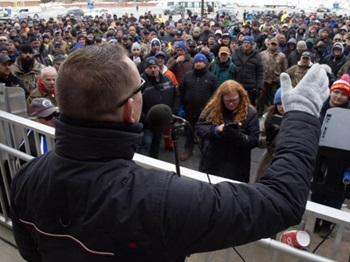 The federal government has agreed to push back the opening of the snow crab season, following a request from the fisheries union and a threat of more protests. The Department of Fisheries and Oceans made the announcement Monday evening, a day after the Fish, Food & Allied Workers union wrote to the department and asked for a one-week delay. Fish harvesters wanted time to iron out the details of an agreement last week with the provincial government to implement sweeping changes to the industry that would affect the upcoming season. DFO initially denied that request, releasing its management plan Monday morning with an expected start date of April 1, prompting influential fisherman John Efford to threaten to rally protesters outside the DFO office in St. John’s. more, >>click to read<< 17:31
The federal government has agreed to push back the opening of the snow crab season, following a request from the fisheries union and a threat of more protests. The Department of Fisheries and Oceans made the announcement Monday evening, a day after the Fish, Food & Allied Workers union wrote to the department and asked for a one-week delay. Fish harvesters wanted time to iron out the details of an agreement last week with the provincial government to implement sweeping changes to the industry that would affect the upcoming season. DFO initially denied that request, releasing its management plan Monday morning with an expected start date of April 1, prompting influential fisherman John Efford to threaten to rally protesters outside the DFO office in St. John’s. more, >>click to read<< 17:31
N.L. protest cause rooted in price-setting systems for fishers and processors
 The protest that erupted Wednesday outside the legislature in Newfoundland and Labrador has its roots in a complex, years-long struggle between independent fish harvesters and processors over the price-setting system, industry observers say. Sean Cadigan, a professor of history at Memorial University, said in an interview Thursday that one underlying factor in the tensions is the plunge in prices for snow crab, the province’s most valuable seafood export. From highs of over seven dollars per pound during the pandemic, the price fell to about two dollars per pound last year, creating hardships for harvesters at a time harvesters’ expenses are rising. He said that has combined with long-standing suspicions that harvesters have toward the small group of companies that dominate fish processing in the province. more, >>click to read<< 07:40
The protest that erupted Wednesday outside the legislature in Newfoundland and Labrador has its roots in a complex, years-long struggle between independent fish harvesters and processors over the price-setting system, industry observers say. Sean Cadigan, a professor of history at Memorial University, said in an interview Thursday that one underlying factor in the tensions is the plunge in prices for snow crab, the province’s most valuable seafood export. From highs of over seven dollars per pound during the pandemic, the price fell to about two dollars per pound last year, creating hardships for harvesters at a time harvesters’ expenses are rising. He said that has combined with long-standing suspicions that harvesters have toward the small group of companies that dominate fish processing in the province. more, >>click to read<< 07:40
Snow crab price talks have broken off, FFAW says
 Protest leader John Efford Jr. grabbed a megaphone Thursday to told the crowd that negotiations for a new crab price-setting formula had broken off ahead of the upcoming season. “There’s no agreement to be made,” he told the cheering crowd. “And how can you make an agreement when you’re trying to make an agreement with a colluded cartel that has the support of the government?” While the price-setting process has been controversial in the past, it hasn’t been at the core of the protests outside the province’s legislature this week. The Fish, Food & Allied Workers union and the Association of Seafood Processors have been working with the provincial government to establish a new formula to determine the price. more, >>click to read<< 17:12
Protest leader John Efford Jr. grabbed a megaphone Thursday to told the crowd that negotiations for a new crab price-setting formula had broken off ahead of the upcoming season. “There’s no agreement to be made,” he told the cheering crowd. “And how can you make an agreement when you’re trying to make an agreement with a colluded cartel that has the support of the government?” While the price-setting process has been controversial in the past, it hasn’t been at the core of the protests outside the province’s legislature this week. The Fish, Food & Allied Workers union and the Association of Seafood Processors have been working with the provincial government to establish a new formula to determine the price. more, >>click to read<< 17:12
Snow crab stock projected to remain healthy, for the most part, in 2024
 Fisheries and Oceans Canada released its annual stock assessment on snow crab Tuesday in St. John’s, and the data indicates the stock remains on par with last year with no major changes. That means the stock is projected to remain healthy for the majority of fishing areas around the province, with one exception. The 2HJ zone off the east coast of Labrador remains in the cautious zone, similar to last year’s assessment. But the positive news may be a result of an ocean cooling period that happened between 2012 and 2018. Snow crab flourish in colder water, allowing young crab the ability to grow to exploitable age and size. That’s between nine and 13 years old with a shell size of over 94 mm for males. Female crab cannot be retained by harvesters. more, >>click to read<< 15:06
Fisheries and Oceans Canada released its annual stock assessment on snow crab Tuesday in St. John’s, and the data indicates the stock remains on par with last year with no major changes. That means the stock is projected to remain healthy for the majority of fishing areas around the province, with one exception. The 2HJ zone off the east coast of Labrador remains in the cautious zone, similar to last year’s assessment. But the positive news may be a result of an ocean cooling period that happened between 2012 and 2018. Snow crab flourish in colder water, allowing young crab the ability to grow to exploitable age and size. That’s between nine and 13 years old with a shell size of over 94 mm for males. Female crab cannot be retained by harvesters. more, >>click to read<< 15:06
New fishery co-op partners with Dandy Dan
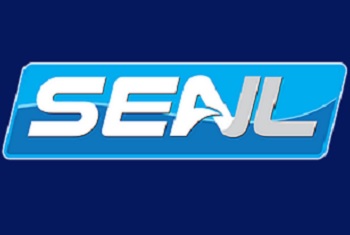 Organizers of a fishery co-operative being formed to represent inshore enterprise owners have agreed to a letter of intent with Dan Meade to sell fish to the Ship Harbour-based processor. Under terms of the agreement, a new fish processing company will be formed that will see the future co-op earn an equity stake in exchange for a pledge to sell at least two million pounds of snow crab a year to the business. “The letter of intent brings the inshore fleet a step closer to breaking itself free from the company cartel,” says co-op organizer/spokesman Ryan Cleary, Executive Director of SEA-NL. Meade sees the partnership as an historic opportunity to rebuild trust with inshore harvesters. “I want to be part of that rebuilding process.” more, >>click to read<< 08:49
Organizers of a fishery co-operative being formed to represent inshore enterprise owners have agreed to a letter of intent with Dan Meade to sell fish to the Ship Harbour-based processor. Under terms of the agreement, a new fish processing company will be formed that will see the future co-op earn an equity stake in exchange for a pledge to sell at least two million pounds of snow crab a year to the business. “The letter of intent brings the inshore fleet a step closer to breaking itself free from the company cartel,” says co-op organizer/spokesman Ryan Cleary, Executive Director of SEA-NL. Meade sees the partnership as an historic opportunity to rebuild trust with inshore harvesters. “I want to be part of that rebuilding process.” more, >>click to read<< 08:49
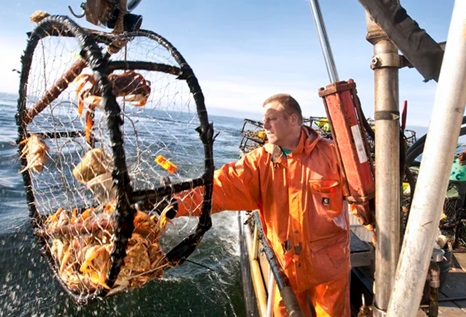
What makes Dungeness Crab Unique
Named after the town of Dungeness, Washington where people first began fishing for these crustaceans in the 1800s, Dungeness crab meat is prized by chefs and seafood connoisseurs alike for its subtle sweetness, and flaky, delicate texture. It’s easy to get lost in the moment when you’re biting into a chunk of delectable Dungeness crab meat. Still, it’s worth pausing to express gratitude toward the crab fishermen (and women) who caught that meal for you. This article covers a lot about these crabs, and you’ll know about a wide variety of crab from Dungeness to King Crab. Dungeness vs. Snow Crab, vs. Stone Crab, Photos, and more, >>click to read<< 16:50
As the once-lucrative Bering Sea crab harvest resumes, Alaska’s fishers face challenges
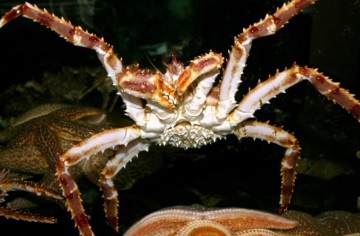 In the short term, Alaska crab fishers and the communities that depend on them will get a slight reprieve from the disastrous conditions they have endured for the past two years, with harvests for iconic red king crab to open on Sunday. In the long term, the future for Bering Sea crab and the people who depend on it is clouded by environmental and economic upheaval. The decision by the Alaska Department of Fish and Game to open harvests of Bristol Bay red king crab after an unprecedented two-year shutdown was a close call, a state biologist told industry members during a meeting on Thursday. >>click to read<< 16:08
In the short term, Alaska crab fishers and the communities that depend on them will get a slight reprieve from the disastrous conditions they have endured for the past two years, with harvests for iconic red king crab to open on Sunday. In the long term, the future for Bering Sea crab and the people who depend on it is clouded by environmental and economic upheaval. The decision by the Alaska Department of Fish and Game to open harvests of Bristol Bay red king crab after an unprecedented two-year shutdown was a close call, a state biologist told industry members during a meeting on Thursday. >>click to read<< 16:08






 The Association of Seafood Producers had its first day in court on Wednesday, challenging the Newfoundland and Labrador government and fisheries union over what it calls “political interference” during price setting negotiations ahead of the snow crab season. The court challenge was prompted when Fisheries Minister Gerry Byrne moved the price setting deadline to April 13, following a request from the Fish, Food and Allied Workers union. The ASP says Byrne acted contrary to the Fishing Industry Collective Bargaining Act and turned to the Supreme Court of Newfoundland and Labrador to quash the date change. “If the minister’s decision is quashed, and we expect it to be because he broke the law, then we’re in the situation where we don’t have a minister’s date,” ASP executive director Jeff Loder told reporters outside of the courthouse on Wednesday.
The Association of Seafood Producers had its first day in court on Wednesday, challenging the Newfoundland and Labrador government and fisheries union over what it calls “political interference” during price setting negotiations ahead of the snow crab season. The court challenge was prompted when Fisheries Minister Gerry Byrne moved the price setting deadline to April 13, following a request from the Fish, Food and Allied Workers union. The ASP says Byrne acted contrary to the Fishing Industry Collective Bargaining Act and turned to the Supreme Court of Newfoundland and Labrador to quash the date change. “If the minister’s decision is quashed, and we expect it to be because he broke the law, then we’re in the situation where we don’t have a minister’s date,” ASP executive director Jeff Loder told reporters outside of the courthouse on Wednesday.  Newfoundland and Labrador industries with strong ties to the U.S. are bracing for impact in the face of President Donald Trump’s 25 per cent tariff threat, but some advocates are calling for a future where companies don’t exclusively rely on a trading partner to the south. On Saturday, the U.S. could impose tariffs on incoming Canadian goods. That has left some Newfoundland and Labrador industries worried. Association of Seafood Producers executive director Jeff Loder said Newfoundland and Labrador’s fishery is at stake under the threat of tariffs. About 90 per cent of snow crab harvested in the province is shipped to the U.S. “The snow crab fishery is set to open in the middle of March. This is already impacting negotiations between ASP and the FFAW. It will be one of the first sectors that’s directly impacted,” he said.
Newfoundland and Labrador industries with strong ties to the U.S. are bracing for impact in the face of President Donald Trump’s 25 per cent tariff threat, but some advocates are calling for a future where companies don’t exclusively rely on a trading partner to the south. On Saturday, the U.S. could impose tariffs on incoming Canadian goods. That has left some Newfoundland and Labrador industries worried. Association of Seafood Producers executive director Jeff Loder said Newfoundland and Labrador’s fishery is at stake under the threat of tariffs. About 90 per cent of snow crab harvested in the province is shipped to the U.S. “The snow crab fishery is set to open in the middle of March. This is already impacting negotiations between ASP and the FFAW. It will be one of the first sectors that’s directly impacted,” he said. 